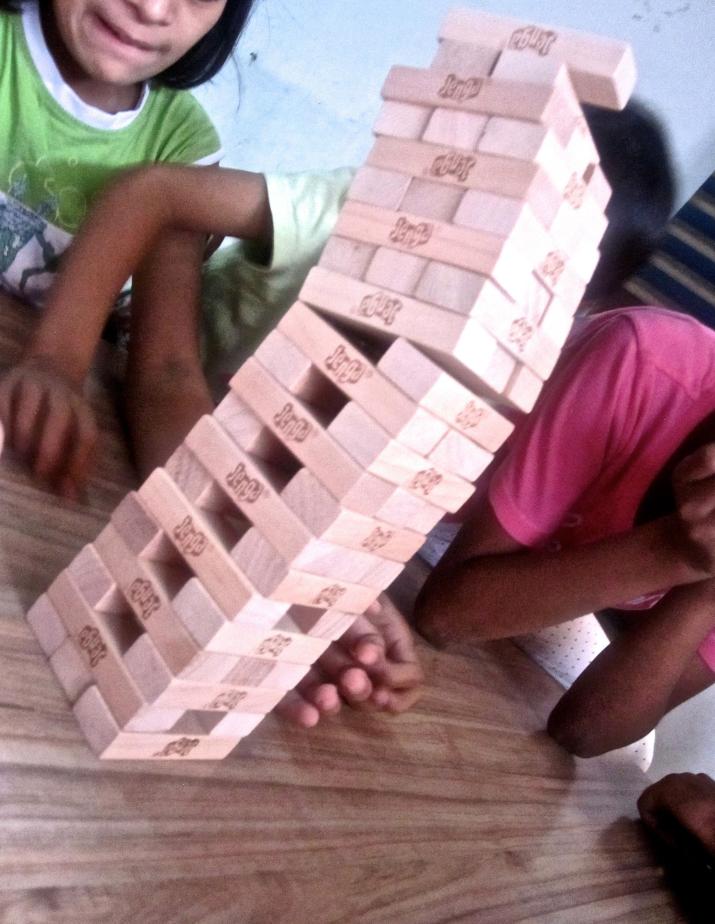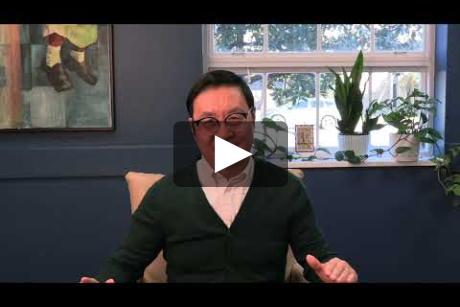
Anyone who has played Jenga knows this is impossible. But Udayan Care is home to some truly extraordinary children.
Published July 22, 2015, last updated on October 17, 2017 under Voices of DGHI
By Joey Levy
To attempt an explanation, I have to go back farther than arriving here eight weeks ago, back to late nights procrastinating in Perkins Library searching for summer opportunities. This SRT program sounded perfect. I wanted to help improve the mental health of children living without parents. But with one day left in this trip, I can confidently say that I have Not done this.
As a team, we have conducted eighty-two interviews with children, collected the school, health, and trauma history information of eighty-two children, and facilitated the psychological assessment of eighty-two children from their guardians’ perspectives.
We have entered thousands of columns of data. I leave tomorrow for home and will be smuggling with me 82 children’s secrets, hidden away in our encrypted laptops. But eight weeks, and we have had zero substantial impact on the mental health of these 82 admirable kids or the other 76 living with Udayan Care who were not randomly selected for our study.
We hope more or less confidently that our upcoming data analysis will yield valuable mental health policy suggestions for Udayan Care and vital information to support their advocacy campaign for vulnerable children. There is no present impact because our research is inherently an investment in the future. Like with any investment, we’ll have to wait (and analyze data and review literature on effective interventions) and see.
Interviewing the alumni of Udayan Care, young adults who lived with the NGO as children, we have seen the return on a different investment. The young men and women we have met are genuine and ambitious. They are entrepreneurs, cooks at world-class restaurants, and college students. All are young-adults with big dreams. 60,0000 rupees ($1,000) can support a child at Udayan Care for a year. The return on this investment is clearly incredible, and money has grown into brilliant lives.
While just my plane tickets to India cost more than a year of support for these children, Duke Global Health Institute has also surely made an investment in me. If I look back honestly on my original purpose for coming here, helping to improve the mental health of orphans is too narrow a goal. I wanted to live in a new culture, learn more about my interests in global mental health, and gain valuable research experience. Unlike my conspicuous, dutiful goal, these more private ones have already been wildly successful.
To name a fraction of these successes: I have discovered that the chipmunks in India can run on telephone wires! I am no longer a novice of eating a meal with roti and without half of the sabji falling on my shirt. I know that Ganesh is the son of Shiva and Parvati, and that Hinduism isn’t entirely polytheistic.
I am aware of the challenges of coordinating with community partners and the complications of actualizing a research project.
I am more capable of empathizing with victims of childhood trauma. I have learned that the same children who smile, dance, and play Jenga can also be privately struggling with mental health issues. In one of the first interviews I conducted, I listened to a girl tell me that she is “not smart,” “not strong,” “not a good person.” She wishes something bad had never happened and feels stupid or bad “almost all of the time.” This was just after she performed a choreographed dance with a huge smile on her face.
I believe in accountable NGOs and have seen this trip that with love and support, kids can overcome horrible trauma.
As I bring my brain full of new skills and experiences back to the U.S., I shoulder a new ethical responsibility even beyond the research. Duke Global Health Institute invested in my education. I owe the field of global health as well as the country that hosted me, and the exemplary NGO who believes in our research, and the beautiful children who gave me their time.
Only after I return to the U.S. will the work really begin on ensuring a return on these investments. And fulfilling the reason I came to India. Our trip here was not a service project. It was preparation for a lifetime of global health service.


